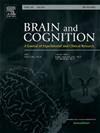词汇加工过程中外语阅读焦虑的注意力分配--采用线索-目标范式的ERP研究
IF 1.4
3区 心理学
Q3 NEUROSCIENCES
引用次数: 0
摘要
大量行为学和教学研究都强调了外语阅读焦虑对外语阅读的负面影响。本研究探讨了外语阅读焦虑是否与外语阅读时注意力分配失调相关。我们使用事件相关电位(ERP)指数作为生物标志物,在对目标位置提出高期望(有效条件)或低期望(无效条件)的条件下,使用线索-目标范式来研究高度外语阅读焦虑(HFLRA)和低度外语阅读焦虑(LFLRA)群体之间的注意分配。行为结果表明,在有效和无效条件下,HFLRA 患者的准确率都明显低于 LFLRA 患者。ERP分析表明,与LFLRA个体相比,HFLRA个体在注意力分配方面表现出显著差异,这体现在N2潜伏期较晚,LPC振幅较强,尤其是在无效条件下。此外,LFLRA 患者在有效和无效条件下的 N2 潜伏期存在显著差异,而 HFLRA 患者则没有这种差异。这些研究结果表明,HFLRA 患者在外语阅读过程中注意力分配效率低下。本文章由计算机程序翻译,如有差异,请以英文原文为准。
Attention allocation in foreign language reading anxiety during lexical processing − An ERP study with cue-target paradigm
Extensive behavioral and pedagogical studies emphasize the negative impact of foreign language reading anxiety on foreign language reading. This study investigated whether foreign language reading anxiety is correlated with dysregulation of attentional allocation while foreign language reading. We used event-related potential (ERP) indices as biomarkers to examine attention allocation between groups with high foreign language reading anxiety (HFLRA) and low foreign language reading anxiety (LFLRA) using a cue-target paradigm under conditions that posed high (valid condition) or low (invalid condition) expectations on target location. Behavioral results indicated that HFLRA individuals exhibited significantly lower accuracy compared to LFLRA individuals in both valid and invalid conditions. ERP analyses demonstrated that HFLRA individuals showed significant differences in attentional allocation compared to LFLRA individuals, as reflected by later N2 latency and stronger LPC amplitude, particularly in the invalid condition. Additionally, LFLRA individuals demonstrated a significant difference in N2 latency between valid and invalid conditions, which was not observed in HFLRA individuals. These findings suggest that HFLRA individuals experience inefficient attentional allocation during foreign language reading.
求助全文
通过发布文献求助,成功后即可免费获取论文全文。
去求助
来源期刊

Brain and Cognition
医学-神经科学
CiteScore
4.60
自引率
0.00%
发文量
46
审稿时长
6 months
期刊介绍:
Brain and Cognition is a forum for the integration of the neurosciences and cognitive sciences. B&C publishes peer-reviewed research articles, theoretical papers, case histories that address important theoretical issues, and historical articles into the interaction between cognitive function and brain processes. The focus is on rigorous studies of an empirical or theoretical nature and which make an original contribution to our knowledge about the involvement of the nervous system in cognition. Coverage includes, but is not limited to memory, learning, emotion, perception, movement, music or praxis in relationship to brain structure or function. Published articles will typically address issues relating some aspect of cognitive function to its neurological substrates with clear theoretical import, formulating new hypotheses or refuting previously established hypotheses. Clinical papers are welcome if they raise issues of theoretical importance or concern and shed light on the interaction between brain function and cognitive function. We welcome review articles that clearly contribute a new perspective or integration, beyond summarizing the literature in the field; authors of review articles should make explicit where the contribution lies. We also welcome proposals for special issues on aspects of the relation between cognition and the structure and function of the nervous system. Such proposals can be made directly to the Editor-in-Chief from individuals interested in being guest editors for such collections.
 求助内容:
求助内容: 应助结果提醒方式:
应助结果提醒方式:


